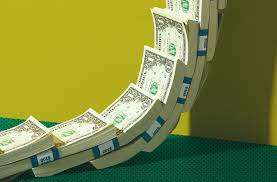A savings vehicle known as a high-yield savings account offers an interest rate greater than a conventional savings account. If you would want to save money for a house, automobile, home improvement project, or any long-term goal, this may be an excellent choice for you to consider.
Online banks often provide high-yield savings accounts since they have lesser overhead expenses than traditional banks. Because of this, they can distribute the savings to their consumers through higher interest rates. However, there is a possibility that conventional banks and credit unions may provide high-yield savings accounts.
Let's imagine you choose to put $10,000 into a conventional savings account, which offers an annual percentage yield of 0.01% and pays no interest. After a year, you will get $1 in interest on your investment. If you invested the money instead in a high-yield savings account that paid an interest rate of 0.5 percent, you would have earned an additional $50 in the same amount of time.
How a High-Yield Savings Account Works
The benefits of high-yield savings accounts might differ from one financial institution to the next. When you create a new account, you may be eligible for various perks, including not having to maintain a certain minimum balance, receiving free transfers, paying monthly maintenance costs, managing your account online, and using digital banking tools.
Traditional savings accounts and high-yield savings accounts may function in very similar ways, with the primary difference being the interest rate that is offered on the former. You put money in an account and, ideally, let it grow. However, you are free to access your money at any time and remove it without incurring any fees, at least to a fair amount.
Pros
Get a higher rate of interest:
The high-interest rate you can receive on the money you put away in a high-yield savings account is one of the most important advantages of having one of these accounts. You'll receive a greater return on your money.
Low risk:
Deposits of up to $250,000, including those kept in high-yield savings accounts, are eligible for Federal Deposit Insurance Corporation (FDIC) insurance.
There are no extra charges: Many high-yield savings accounts don't charge any monthly fees and don't demand a minimum balance. However, some do impose fees; thus, it is essential to understand the terms and conditions before committing.
Cons
Fluctuating interest rates:
The interest rates awarded to high-yield savings accounts are subject to change at any time. They are subject to alterations at any moment and are determined by the state of the economy.
It's not the best strategy for long-term wealth:
While a high-yield savings account might help achieve short-term savings objectives, it is not the best option for long-term investing. When it comes to putting money down for retirement, other accounts like 401(k)s and IRAs are often considered the best choices. These accounts provide the possibility for higher profits and come with tax benefits.
Is It Possible to Squander Money in a High-Yield Savings Account?
Although there is no investment or savings choice that is completely free of danger, high-yield savings accounts are undoubtedly on the safe side of the spectrum. FDIC insures deposits in high-yield accounts for a maximum of two hundred fifty thousand dollars per account. Regardless of the economy, up to that level, your money will always be protected by insurance.

However, this does not mean that the state of the economy cannot affect the amount of money you have. The FDIC primarily protects against the failure of banks and not against falling interest rates. Because of the FDIC, you won't risk losing the money you've saved even if interest rates go down. However, the interest rate you had anticipated will not be available.
Alternatives to High-Yield Savings Accounts

CDs
When you purchase a certificate of deposit (CD), you must commit your cash to the purchase for a certain amount of time up to the CD's maturity date. This period might be as little as one year or as long as five years. In exchange, you are offered a higher interest rate that is guaranteed.
401(k):
A 401(k) is a kind of retirement plan sponsored by an employer. In the same way that an IRA does, it enables you to save money for your retirement while providing favorable tax treatment. Your employer will often contribute an equal amount to your 401(k) plan. You may create a solo 401(k) if you're an entrepreneur or self-employed.




